Once again we have Bill Maher saying stupid stuff about religion. Though I am a fan and find him correct most of the time, he keeps sticking his foot in his mouth about religion. I do not understand why he refuses to listen to the experts on this topic. This time though, it was not just Bill Maher, but our liberal media. Both sides, liberal and conservative, seem to be equally ignorant or stupid about the topic of religion, Islam, and the Middle East. I have spoken about this issue before but I wanted to do a blog dedicated to the topic because it really needs it. Religion, especially Islam, is very misunderstood in this country and for whatever reason, no one cares to listen to the experts.
The thing that made me feel the need to type this up was Reza Aslan’s interview on CNN. Before I show the video, I want to give his credentials…
Aslan holds a Bachelor of Arts degree in religions from Santa Clara University, a Master of Theological Studies degree from Harvard Divinity School, and a Master of Fine Arts degree from the University of Iowa’s Writers’ Workshop, where he was named the Truman Capote Fellow in Fiction. Aslan also received a Doctor of Philosophy in Sociology, focusing in the history of religion, from the University of California, Santa Barbara.[7][8][9] His dissertation was titled “Global Jihadism as a Transnational Social Movement: A Theoretical Framework.”-Wikipedia
If anyone is confused about Religious Studies I would suggest either Googling it or reading my blog about it before you continue because it is more than reading the Bible or “studying God.”
Here is the interview.
I expect that kind of crap from Bill Maher when it comes to religion but CNN shows the larger problem. “Muslim countries,” “Muslim countries,” Muslim countries,” he really hits the nail on the head with everything he said. To keep saying “Muslim countries” as if they are all the same is stupid. It is more than ignorant because he is there educating them on the topic and they ignore him. That is stupid. He is pointing out the fact that not all Muslim countries are the same and Americans appear to be completely clueless to this. Before I get into Muslim countries, let me do the exact same thing with America…
Do you believe these pictures accurately represent America?
Would you be offended if I said those pictures accurately represented most, or the average, American(s)? If you do not believe that is fair, why is it fair to do that to the Muslim world? Do you simply not realize the way we portray Muslims is not representative? The way we portray Muslims is the minority of Muslims, this is the point Reza was trying to make.
Contrary to popular belief, Religion is not the biggest driving factor in people’s actions, culture and society is. In Religious Studies we look at religion from all the different angles including sociological and anthropological (cultural) and it is painfully obvious that these issues are due to culture or society and not religion. The Sunni-Shia rift is a CULTURAL argument. We know culture and society are the driving factors because they both SHAPE religion. Religion can shape culture and society but culture and society are the bigger force. We know this because different cultures and societies with the same religion are very different. Also, if religion was the driving force, why are there so many denominations? The reason is people do not agree. Whether that disagreement is societal or personal, it is more powerful than religion because religion was changed because of that.
This is exactly what Reza was talking about. Female genital mutilation (FGM) is an AFRICAN problem. Here are a few maps of FGM and Religion. Click on the pics to enlarge them
It is certainly a problem in a very specific part of the world, mostly Africa and the Arabian Peninsula. It does certainly appear to be in areas that are Muslim, but Christian majority countries in Africa also have an issue with it. One map echoes what Reza was saying about Ethiopia. Ethiopia has around 75% of women experiencing FGM and they are a Christian majority…
According to the 2007 National Census, Christians make up 62.8% of the country’s population (43.5% Ethiopian Orthodox, 19.3% other denominations), Muslims 33.9%, practitioners of traditional faiths 2.6%, and other religions 0.6%
If this were strictly a Muslim issue we would expect to see around 1/3rd, not 3/4th. This shows it is clearly a cultural thing, not a religious thing. You may want to point out that the Arabian Peninsula is not Africa. Actually it is, in a cultural sense. If we trace culture backwards we will see that Arabs are a Semitic speaking peoples, and the Semitic language originated in Africa. Here is a map…
You will notice that only a few pockets of people in Iran are Semitic peoples. That is because the Iranian peoples are Indo-European peoples. This is the nature of the Sunni-Shia rift, the culture, not religion.
Besides FGM, how do we typically portray Muslims? Radical terrorists that treat women worse than dogs? As Reza says, that is certainly representative of certain countries, such as Saudi Arabia. No one is debating that the way SA treats their women is primitive and barbaric or that their beheading of people is alright. The problem is this is not representative of all Muslim countries. Would a Muslim country that saw women as inferior elect one as their head of state? As Reza mentions, seven women have been elected head of state in majority Muslim nations, another one was appointed…
Tansu Çiller, elected prime minister of Turkey, 1993-1996
Benazir Bhutto, elected prime minister of Pakistan 1988-1990, 1993-1996
Mame Madior Boye, appointed prime minister of Senegal, 2001-2002.
Megawati Sukarnoputri, elected president of Indonesia, 2001-2004
Khaleda Zia, elected prime minister of Bangladesh, 1991-1996 and 2001-2006
Sheikh Hasina, elected prime minister of Bangladesh 2009-
Roza Otunbayeva, president of Kyrgyzstan, 2010- 2011
Atifete Jahjaga, elected president of Kosovo 2011-
And actually throughout the history of Islam women have been leaders or held positions of power…
http://www.guide2womenleaders.com/Muslim_Leaders.htm
http://en.wikipedia.org/wiki/Muslim_female_political_leaders
Like Reza asks, how many female leaders have we had here in the US?
Many Muslim nations are very secular. Take Turkey for example.
Turkey has been a secular state since it was founded by Mustafa Kemal Atatürk in 1923. He introduced the secularization of the state in the Turkish Constitution of 1924, alongside Atatürk’s Reforms. These were in accordance with the Kemalist Ideology, with a strict appliance of laicite in the constitution. Atatürk saw headscarves as backward-looking[original research?] and an obstacle to his campaign to secularize and modernize the new Turkish Republic. The issue of the headscarf debate has been very intense and controversial since it was banned.[1] Turkey is a secular country and over 95% of its people are Muslims.[2] It has resulted in a clash between those favouring the secular principles of the state, such as the Turkish Army,[3] and those who are more conservative with their religious beliefs.-Wikipedia http://en.wikipedia.org/wiki/Headscarf_controversy_in_Turkey
The United States needs to grow some secular balls and ban the headscarves! Seriously, I am not for that, but look at a Muslim country our secularizing the United States, impressive for a primitive and oppressive, conservative religious people. *Sarcasm*
I can point out leaders and point out facts. I can tell you about my experience with Muslims in the Religious Studies department at the University of Minnesota. I can tell you about my classes in Middle Eastern studies and Islam, but I have a more effective method. They say a picture is worth a thousand words, so I will save on the typing and post some pictures.
While in the Air Force I spent time in two Muslim countries. The first was Kyrgyzstan…
Islam is the dominant religion of Kyrgyzstan: 80% of the population is Muslim while 17% follow Russian Orthodoxy and 3% other religions.[70] A 2009 Pew Research Center report indicates a higher percentage of Muslims, with 86.3% of Kyrgyzstan’s population adhering to Islam.[71] The majority of Muslims are non-denominational Muslims at 64% while roughly 23% are Sunni, adhering to the Hanafi school of thought.[72] There are a few Ahmadiyya Muslims, though unrecognised by the country.-Wikipedia
The second was the United Arab Emirates…
Islam is the largest and the official state religion of the UAE. The government follows a policy of tolerance toward other religions and rarely interferes in the activities of non-Muslims.[77] By the same token, non-Muslims are expected to avoid interfering in Islamic religious matters or the Islamic upbringing of Muslims.
The government imposes restrictions on spreading other religions through any form of media as it is considered a form of proselytizing. There are approximately 31 churches throughout the country, one Hindu temple in the region of Bur Dubai,[172] one Sikh Gurudwara in Jebel Ali and also a Buddhist temple in Al Garhoud.
Based on the Ministry of Economy census in 2005, 76% of the total population was Muslim, 9% Christian, and 15% other (mainly Hindu).[77] Census figures do not take into account the many “temporary” visitors and workers while also counting Baha’is and Druze as Muslim.[77] Among Emirati citizens, 85% are Sunni Muslim, while Shi’a Muslims are 15%, mostly concentrated in the emirates of Sharjah and Dubai.[77] Omani immigrants are mostly Ibadi, while Sufi influences exist too.[173]
People of all faiths or no faith are given equal protection under the country’s constitution and laws.-Wikipedia
While we were deployed, we had a shared folder of pictures taken while on our trips. That is where most of these pictures were taken from. The only purpose of these pictures is to show how the women dress and their freedom. Click on the pictures to enlarge them
Here are a few pictures from Kyrgyzstan. Kyrgyzstan has a mixed population of Russians and Kyrgyz. They have a heavy Russian influence and 64% of their Muslims are non-denominational Muslims. It is safe to assume that in these pictures the white people are Russian Orthodox (the Kyrgyz look more Asian) and not Muslim but the point is how WOMEN are treated in a Muslim country.
Here is a picture from a typical market place. The women here are dressed the same way you would find them dressed in Europe or America. They are also out there by themselves, no men needed.
Here is a picture from what I believe is a class trip. If it were not for the background you might assume this was a group of American kids.
The next three pictures are of the two lovely women that worked with us in linen exchange at Manas Air Base. They are there by themselves, no men. You will notice me in a picture with one of them and I am certainly not related to her.
On to the UAE. This was a fun trip. The people were so diverse. You have very conservative Muslims with the women covered from head to toe all the way to what we typically see here in America. The pictures that truly show how oppressed women are is best illustrated at a water park. Here are pictures taken from the shared file of a trip to the water park. Keep a close eye on what people are wearing and who they are with.
I want you to focus specifically on these two pictures. Notice that in the back ground there is a woman with a hijab with her face shown an in another it appears her face may be completely covered.
The range of diversity rivals and probably surpasses the United States. They have very conservative to very secular or liberal. I know recently on the news they showed a picture of a female UAE pilot, which Fox News thought was appropriate to make fun of, calling it “boobs on the ground” and saying she would have problems parking the plane. So apparently in America the idea of a female pilot is something to joke about but in the UAE women have the right to be one and their armed forces see them as just as capable as a man to do the job. It really makes me wonder which country has the problem with women being equal, Muslim UAE, or Christian America. Here is the picture of that woman and also a picture of other female pilots in the UAE Air Force. Notice that half of the women have their head covered and the other half, do not.
Is this what you thought a Muslim country looked like? This is exactly what Reza Aslan was saying. Not all Muslims countries are the same and vary greatly with how conservative or secular they are. Some Muslims countries surpass the United States when it comes to the equality of women. Some are more secular than the United States. I would argue that some run their countries better. Take UAE for example. They have billions, possibly trillions, from their oil. Instead of letting it sit in banks accounts, like we do here in the United States, they have been putting it back into the country to build infrastructure and some of the most beautiful buildings in the world. They have turned it into a tourist destination. They have a ski resort inside of a mall. Like Reza says, to say “Muslim countries” to suggest that all Muslim countries are like Saudi Arabia, Somalia, or Afghanistan is STUPID.
I leave you with some pictures of the UAE and what they have done with their oil money. I ask that you think about what billionaires have built for America recently…






















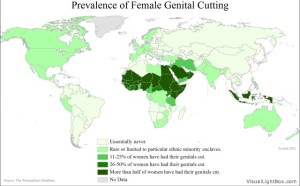
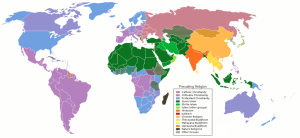
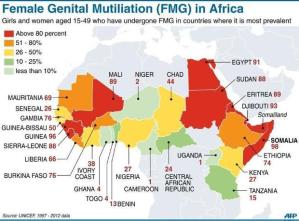
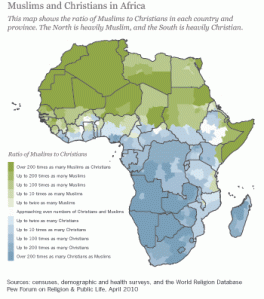
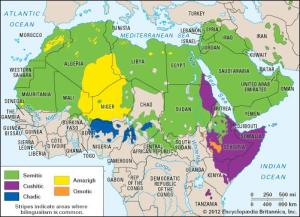
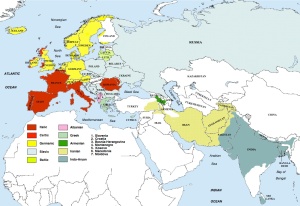























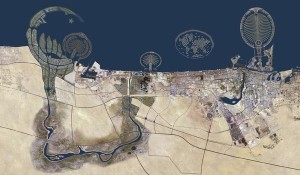








.jpg)